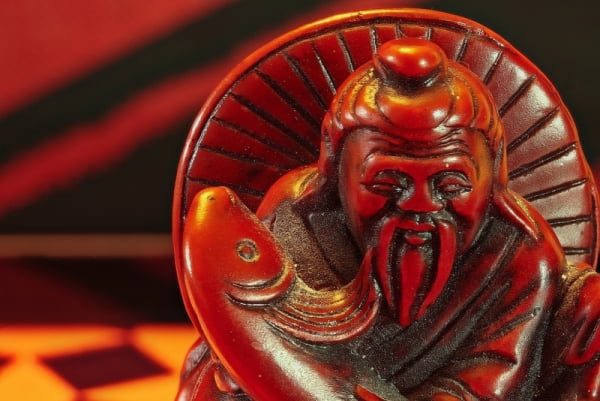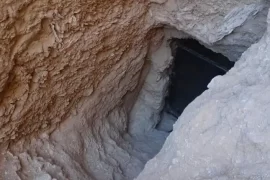Narayani Basu

Since their launch in 2004, the Beijing-backed Confucius Institutes have been no strangers to controversy. While their defenders liken them to the Chinese equivalents of the Goethe Institute, the Alliance Francaise and the British Council, their critics have christened them fonts of espionage and propaganda – charges which, though salacious, are still unsubstantiated. Is the Western understanding of soft power and propaganda blurred? Is there any truth to these rumours, or is it merely a paranoid reaction to the successful exports of Chinese culture worldwide?
The Issue
A US State Department directive, issued on 17 May 2012, made it clear that the credentials of Confucius Institutes in America across the country were under review. According to a report in the Chronicle of Higher Education, any academics at university-based institutes who are teaching at the elementary- and secondary-school levels are violating the terms of their visas and therefore, must leave by the end of the academic year in June. Further, after a “preliminary review”, the report states, the State Department has determined that the Institutes must obtain American accreditation in order to continue to accept foreign scholars and professors as teachers.
While leading newspapers in China, including the China Daily and Shanghai Daily, have claimed that Washington is “attacking” the Institutes. The significance with which Beijing views this move is seen by a recent statement that the friendship between American and Chinese people could be harmed if the decision is not reversed.
Propaganda versus Soft Power?
Funded by an affiliate of the Chinese Ministry of Education, the mission statement of the Confucian Institutes is to “satisfy the need of people who are interested in Chinese learning all around the world, promoting the understanding of Chinese language culture, enhancing the educational and cultural cooperation between China and the world…” Beijing perceives these Institutes to be a strong symbol of what China can bring to the global table as far as soft power is concerned. Further, while most Institutes are attached to universities, they do not compete with existing university programs, and are present only to augment existing language courses and cultural exchange efforts. China has pumped millions of dollars into this exercise in cultural diplomacy – creating more than 300 institutes toward a worldwide goal of 1000 by 2020.
But would they be viable fronts for espionage and propaganda? Predictably the risk to the kind of investment that Beijing has put in, if at all an exposure for hosting spies appears on the cards, is huge. Further, they offer no extra benefit to the Chinese intelligence services that China does not already possess. The tentacles of China’s secret services certainly do stretch across all sectors of society, from diplomats and businesspeople, to academics and journalists. The constant interference by the Chinese embassy in the workings of student associations in countries like America are proof of the fact that Beijing does keep a sharp eye on what its citizens are up to even beyond its borders. Lastly, and far more importantly, China’s prowess as far as cyberspace is concerned can provide far more important data than any that could be provided by the Institutes in question.
While these are basic reasons as to why Beijing would not jeopardize an already successful intelligence program, they are also further evidence of the fact that Western critics could be jumping the gun by labeling the Institutes fonts of propaganda and espionage.
Yet, critics of the Institutes in the West persist with their line of questioning. Of late, a far more dangerous and insidious accusation is circulating regarding the working of the Institutes. They are accused of “united front works”. This is a term that harks back to republican China, but basically means Beijing’s efforts to identify friends and isolate enemies. The logic here is that true friends will identify and isolate enemies from the CCP, while hiding any hint of direct involvement by the Party itself.
A finger is now being raised at the modus operandi of the Institutes, in comparison to Western institutes. While Western Institutes are political organizations, operating outside university walls and are allowed in only when universities find their activities appropriate, the Confucius Institutes in America are deemed to be political organizations which wrap their real activities in the mantle of apolitical legitimacy. So, if the aim here to is to isolate the enemies, then who are the enemies in question? They consist of largely two groups, identified often enough in the official press: the “Five Poisons” and “Western hostile forces”. The former includes Taiwan, separatist groups in Tibet and Xinjiang, the Falun Gong, and the dissidents who advocate democracy. The latter is often a euphemism for the US and often extended to those who foment social unrest and try to ‘Westernise’ China.
Conclusion
Given the murkiness of the factors that lie behind these most prominent symbols of Chinese soft power, the full implications of what this could mean is not yet fully clear. Certainly the programs are a legitimate means to export Chinese language and culture to the rest of the world. But given the nature of the Institutes’ relationship with the Chinese government – especially in the light of the statement by Li Changchun, a party boss, that they are “an important part of China’s international propaganda effort” – they do deserve to be kept under careful scrutiny.
Narayani Basu
Research Intern, CRP, IPCS
email: narayanibasu@gmail.com
About the author:
IPCS (Institute for Peace and Conflict Studies) conducts independent research on conventional and non-conventional security issues in the region and shares its findings with policy makers and the public. It provides a forum for discussion with the strategic community on strategic issues and strives to explore alternatives. Moreover, it works towards building capacity among young scholars for greater refinement of their analyses of South Asian security.
News Source: www.eurasiareview.com







